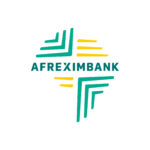Humans use the traditional, global financial system to move a lot of money every day. That means this system serves billions of individuals and businesses across the world. However, this system has many problems, including delays and fees that create friction via onerous and redundant paperwork. Also, this system has many loopholes that make opportunities for crime and fraud.
Financial intermediaries, including stock exchanges, payment networks, and money transfer solutions, experience economic crimes every year. Therefore, it’s not surprising that regulatory costs keep increasing and are among the primary concerns for bankers. Ultimately, consumers bear the additional costs that come with regulations.
- Kidnapping: 8 regain freedom in Ekiti after ransom payment
- Beyoncé: I had up to 50 songs before I became a teenager
But why is the traditional financial system so inefficient? Well, this system is antiquated. It’s a kludge of paper-based processes and industrial technologies in a digital wrapper. Also, being centralized makes the traditional financial system vulnerable to attacks and failures. At the same time, this system is change-resistant. Since this system is exclusionary, it denies many people from accessing essential financial tools.
Bankers worldwide have dodged creative deconstruction that is critical to economic progress and vitality despite being messy. But Bitcoin and blockchain present an innovation that could solve this problem.
Bitcoin and Blockchain explained
Initially, blockchain was to serve as the technology behind Bitcoin and other virtual currencies. This technology creates a distributed ledger that runs on millions of digital devices. What’s more, humans can use this ledger to record anything valuable.
Using blockchain, humans can move and store money, bonds, equities, deeds, contracts, titles, and almost any asset privately, securely, and from peer to peer. That’s because cryptography, network consensus, clever code, and collaboration establish trust in the blockchain network rather than intermediaries like governments and banks.
And this marks a time in human history when several parties, whether individuals or businesses, that might not know each other make transactions, forge agreements and create value without depending on intermediaries. Thus, this technology eliminates intermediaries like rating agencies, government bodies like the U.S Department of State, and banks to verify identities, establish trust, or perform vital business logic. Essentially, this technology facilitates clearing, contracting, record-keeping, and settling tasks which are all fundamental commercial aspects.
Investing in disruptive technologies
Considering the peril and promise of these disruptive technologies, many companies within the financial sectors, including insurers, banks, professional service, and audit firms, are now investing in Bitcoin and blockchain solutions.
Many individuals are also buying Bitcoin on platforms like Bitcoin Era. Such sites allow people to register and purchase Bitcoin with fiat money. But, what’s the driving force behind these investments?
Well, many people cite the opportunities for reducing costs and friction. Undoubtedly, most financial intermediaries depend on complex, costly, and dizzying go-betweens that run their operations. By using blockchain-based applications, consumers can save billions in insurance and banking fees every year.
Incumbent financial service providers could streamline businesses, do more, and reduce the process risk by embracing Bitcoin and blockchain technologies. While this opportunistic viewpoint is often necessary and advantageous, it might be insufficient. For instance, how can you reduce costs from a market or business with a fundamentally changed structure?
Well, blockchain and Bitcoin are the real game-changers. That’s because they reduce transaction costs among economic participants. That way, they support peer-to-peer models for mass collaboration. Consequently, these innovations could make render the current organizational systems redundant.
Final Thoughts
Bitcoin and blockchain are not existential threats to people that embrace new technology paradigms and disrupt the traditional systems from within.
However, the question of entities that will lead this revolution in the financial service industry remains paramount. Old paradigms leaders always struggle to embrace innovations throughout history.
Nevertheless, Bitcoin and blockchain could present an unstoppable force that will barrel down on the modern finance infrastructure. Like with the past paradigm shifts, Bitcoin and blockchain will create losers and winners.




